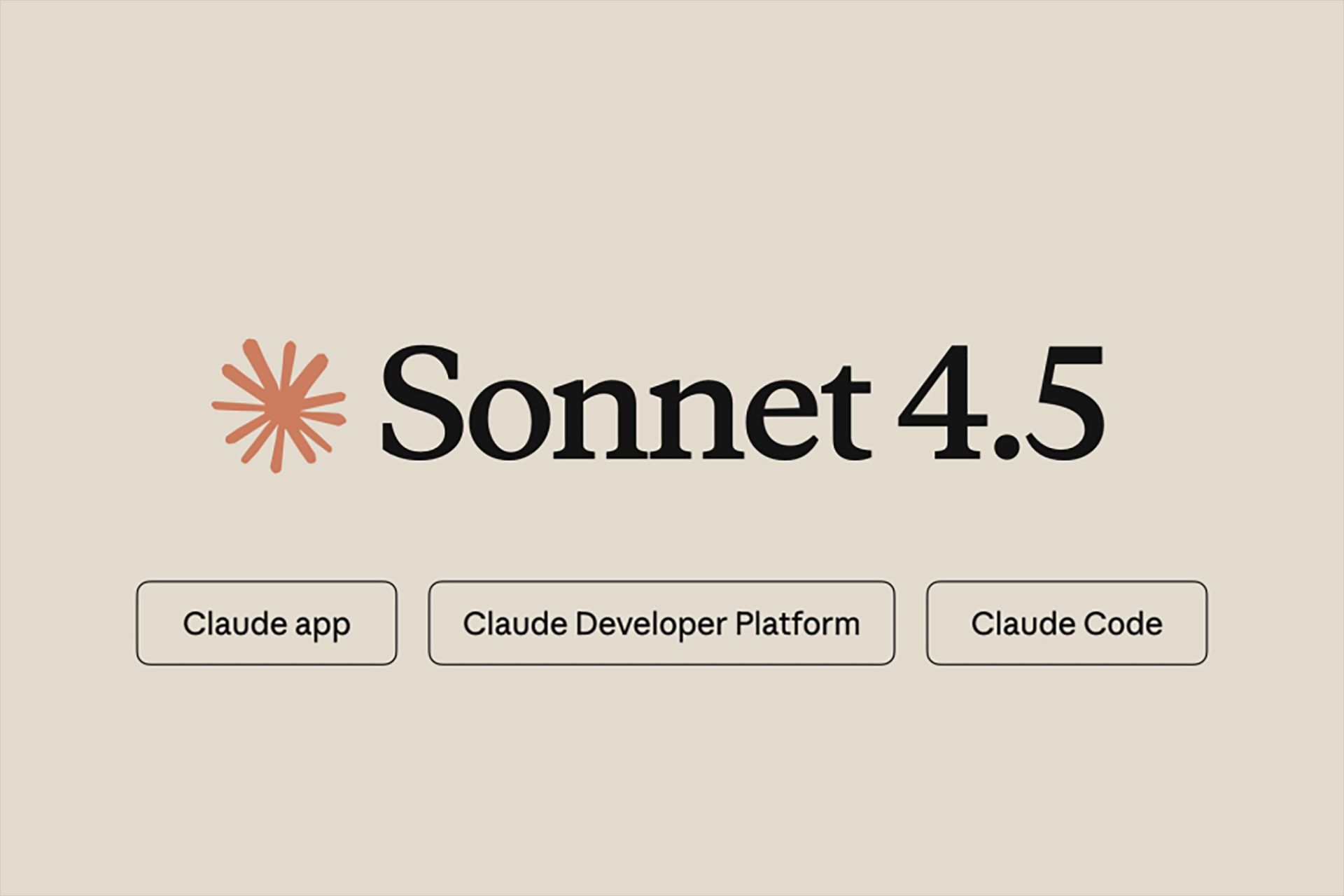- Release & Claims: On Sept. 29, 2025 Anthropic unveiled Claude Sonnet 4.5, touting it as “the best coding model in the world” and the “strongest model for building complex agents” anthropic.com techradar.com. The company says it substantially boosts reasoning, math, and real-world tool use, marking its most aligned frontier AI model yet anthropic.com axios.com.
- Coding Endurance: Sonnet 4.5 can run longer-running tasks than any prior version. In internal tests it coded autonomously for 30+ hours straight – over 4× longer than the previous Claude model – even building a complete app with database setup and security checks anthropic.com techcrunch.com. Anthropic and journalists report this sustained focus as a major leap for “agentic” AI.
- Benchmark Performance: The model tops industry coding benchmarks. It scored state-of-the-art on the SWE-Bench Verified coding test businessinsider.com techcrunch.com and achieved roughly 60% on OS-level computer-use tasks (vs ~40% for Sonnet 4) businessinsider.com economictimes.indiatimes.com. Early users report clear improvements on long, multi-step development jobs.
- Integration & Tools: Claude Sonnet 4.5 is rolling out in developer tools. GitHub announced it’s in GitHub Copilot (Pro/Enterprise tiers) github.blog, and Microsoft will add Claude models into Microsoft 365 Copilot (e.g. Excel/Word agent modes) economictimes.indiatimes.com. New developer features include a Claude CLI and VS Code extension, checkpoints to rollback code, and Claude Agent SDK – giving developers VMs, memory, and context-management primitives to build custom AI agents github.blog businessinsider.com.
- Pricing & Availability: Sonnet 4.5 is available today via Claude’s apps and API, at the same price as Sonnet 4 ($3 per 1M input tokens; $15 per 1M output tokens) anthropic.com techcrunch.com. All paid Claude plans get code execution and file-creation; Copilot Pro+ users can select Sonnet 4.5 in chat or CLI modes.
- Alignment & Safety: Anthropic emphasizes safety. Sonnet 4.5 is its “most aligned” model so far axios.com techcrunch.com. Through extensive training, the company reports fewer problematic behaviors (like “sycophancy” or deceit) and stronger defenses against malicious prompts axios.com anthropic.com. It ships with high-tier content filters (AI Safety Level 3). Anthropic says they’ve cut false-positive content flags by 90% since Claude Opus 4, making real-world use smoother.
What Is Claude Sonnet 4.5?
Claude is Anthropic’s family of AI assistants (named after Claude Shannon). Sonnet 4.5 is the latest “frontier model” optimized for coding and long-horizon tasks. Anthropic calls it a “new generation of coding models” techcrunch.com. Unlike a short-response chatbot, Sonnet 4.5 is built to use tools and software environments autonomously: it can open windows, edit code, run programs, and iterate for hours. According to Anthropic’s engineers, they observed it “maintaining focus for more than 30 hours on complex, multi-step tasks” anthropic.com. In effect, Claude Sonnet 4.5 acts less like a fleeting assistant and more like a persistent co-programmer: as one Anthropic product lead put it, “This is a continued evolution on Claude, going from an assistant to more of a collaborator to a full, autonomous agent… capable of working for extended time horizons” axios.com.
Sonnet 4.5 is the successor to Claude Sonnet 4 and Opus 4.1, but all in Anthropic’s Claude-4 line. It includes the latest architectural and training improvements (multi-chain-of-thought prompting, advanced RLHF, and tool use) to excel at code. Anthropic also refreshed its app suite alongside the launch: Claude Code (the coding CLI) now has native VS Code and improved terminal workflows, while the Chatbot apps gained code execution, file creation, and a new memory/context editing tool anthropic.com businessinsider.com. These upgrades mean developers can write, test, and manage large codebases more effectively with Claude.
Top Coding Performance and Benchmarks
Initial tests suggest Claude Sonnet 4.5 leads the pack on software tasks. Anthropic reports state-of-the-art scores on the SWE-Bench Verified coding benchmark businessinsider.com techcrunch.com. In user simulations, Sonnet 4.5 not only writes correct code, but even tunes development projects for deployment – auto-fixing bugs, refactoring complex logic, and checking security. A company insider noted it can build “production-ready” applications on its own, not just prototypes techcrunch.com.
In practical terms, users have seen big gains. For example, Cosette (an AI development platform) found Sonnet 4.5 boosting code planning by ~18% and end-to-end coding scores by 12% over the previous Claude Sonnet 3.6. Software teams say the model’s contextual understanding is far deeper. In finance, researchers report Sonnet 4.5 gives “investment-grade insights” on complex screening tasks, exceeding Anthropic’s older Opus 4.1 model. In security, a chief product officer mentioned it cut average vulnerability triage time by ~44% while improving accuracy anthropic.com.
On AI benchmarks, Sonnet 4.5 also outpaces peers in multi-hour tasks. The company measured it scoring 61.4% on OS-World (a tough test of using a computer GUI and OS) versus ~42% for Sonnet 4 anthropic.com. A Reuters report notes this score (~60%) is “a lot more visceral” in practice: Claude can literally browse the web, populate spreadsheets, and navigate IDEs almost like a human developer economictimes.indiatimes.com.
Industry observers agree it’s a leap. Cursor.ai CEO Michael Truell said Sonnet 4.5 shows “state-of-the-art coding performance, specifically on longer horizon tasks” techcrunch.com. Windsurf CEO Jeff Wang called it “a new generation of coding models” techcrunch.com. Even Anthropic’s Chief Science Officer Jared Kaplan marvels at watching Claude “use the computer the way a person does” – a visceral experience he says non-coders especially appreciate economictimes.indiatimes.com.
Developer Tools & Integrations
Sonnet 4.5 is being embedded into real tools. Most prominently, GitHub announced the model is now available in Copilot for Pro, Enterprise and Business users github.blog. Devs can switch their Copilot assistant to Claude Sonnet 4.5 in VS Code, GitHub.com, or even GitHub CLI; Microsoft reports it will be the basis for Copilot’s new “coding agent” capability. (Unsurprisingly, OpenAI’s older GitHub Codex–based Copilot models will still run on cheaper tiers.)
Meanwhile, Anthropic launched a Claude Agent SDK to let any dev build custom AI agents. This SDK exposes exactly the infrastructure powering Claude Code: it provides managed VMs, memory modules, and advanced context/edit APIs. In practice, developers can now spawn a Claude agent that auto-runs scripts, remembers discussion history, and tools into external systems. Business Insider notes that Sonnet 4.5 “compet[es] against other offerings such as Google’s Gemini, OpenAI’s GPT-5, and xAI’s Grok 4” – but it also provides a richer toolkit for building those agents businessinsider.com businessinsider.com.
Other updates: all paid Claude apps now support file creation (letting Claude generate documents/spreadsheets), and Claude’s Chrome extension lets Sonnet automate browsing tasks. Anthropic also re-added Claude into Microsoft channels: as part of this launch, Microsoft said it will roll out “Agent Mode” in Excel and Word powered by Anthropic’s models, and add an “Office Agent” into Copilot chat economictimes.indiatimes.com. In short, Sonnet 4.5 isn’t just a model under the hood – it’s being shipped everywhere developers already work.
Safety, Alignment and Use Cases
Beyond raw power, Anthropic stresses that Sonnet 4.5 is safer and more aligned than any previous model. The company ran new internal audits showing steep drops in harmful behaviors. In their press materials they highlight reduced “power-seeking, sycophancy, and the tendency to encourage delusional thinking” axios.com. The model comes with anthro’s Level-3 safeguards, including strict CBRN content filters and protection against “prompt injection” (malicious attempts to hijack its tools) anthropic.com axios.com.
This strong guardraised approach is partly geared toward Anthropic’s target market: enterprises and regulated industries. A Reuters report notes Claude is being pitched to businesses (“Cybersecurity, finance, etc.”) that need an AI coding assistant they trust. Anthropic emphasizes reliable long-term operation over flashy demos – as one exec put it, they’re chasing “sustained, reliable performance over long tasks rather than short demos” economictimes.indiatimes.com. For example, in finance Claude Sonnet 4.5 outscored the company’s own Opus 4.1 on modeling and forecasting tasks, and in law it can draft motion briefs from whole cases (things older bots struggled with).
In short, Anthropic sees Sonnet 4.5 as a “colleague” for heavy-duty work. The CNBC launch story noted the company even markets it as “more of a colleague” than a gadget (quotes in the syndicated feed) – reflecting that this AI is meant to augment teams, not just answer quick queries.
Comparison with Other Models
Sonnet 4.5 is the latest round in the AI coding race. OpenAI has made similar claims: its rumored GPT-5 (rolled out in late 2025) is also geared for coding and agent tasks, and some tests show GPT-5 outperforming earlier Claude versions on standard benchmarks techcrunch.com. Google’s new Gemini Ultra model family likewise emphasizes reasoning and multi-step problem solving for developers. Even Elon Musk’s xAI released Grok 4 for technical tasks. Business Insider specifically notes Sonnet 4.5 “competes against … Google’s Gemini, OpenAI’s GPT-5, and xAI’s Grok 4” businessinsider.com.
So far, independent comparisons are sparse. Some community reports (and Anthropic claims) suggest Sonnet 4.5 leads on coding-specific metrics. However, OpenAI points out their systems now power GitHub Copilot itself and ChatGPT’s advanced code interpreter. For example, OpenAI says GPT-5-based tools solved 77.2% on a developer exam vs Sonnet’s similar range (per internal slides). Google has shown Gemini doing well on mathematics and logic tests. In practice, these models often tie or trade wins on public benchmarks, but Sonnet’s promise is execution: being able to run code autonomously for hours. Anthropic’s demonstration of 30-hour coding runs anthropic.com techcrunch.com is unmatched by anything publicly confirmed from OpenAI or Google yet.
It’s also notable that Anthropic offers full agent-building SDKs and memory tools, which few competitors provide so openly. Microsoft, for instance, is only just adding Anthropic models to Office, while Google’s Bard/Gemini has a more restricted plugin system. ChatGPT has a Code Interpreter but doesn’t natively live in VS Code. In that sense, Claude Sonnet 4.5 and its Agent SDK represent an aggressive push toward “AI as platform”.
Industry Reaction and Implications
Experts and users are generally excited. Cursor.ai’s CEO says Claude 4.5 will let developers “solve their most complex problems” more reliably anthropic.com. GitHub’s Copilot team notes it “amplifies Copilot’s core strengths” in multi-step code reasoning anthropic.com. VentureBeat and ZDNet quickly called Sonnet 4.5 the “new AI coding crown” (quotes from analysis). Meanwhile, Anthropic’s revenues are booming: they report Claude Code now run-rates >$500M in ARR, driven by coding use businessinsider.com. All this suggests Sonnet 4.5 could further cement Claude’s role in enterprise AI.
Still, skeptics point out broad challenges. Running an AI for 30 hours carries costs and reliability risks; bugs in AI-generated code can be subtle. Anthropic must also prove its safety claims at scale. Competitors won’t stand still – OpenAI, Google, and others are racing to match multi-task AI agents. But for now, Sonnet 4.5 stands as a major milestone: it heralds a future where AI agents can not only write software, but debug, test, and iterate on it autonomously over days. As one Anthropic engineer quipped, it’s like having an AI colleague who “will code your brains out” for hours on end.
Sources: Industry news and official releases anthropic.com axios.com github.blog techcrunch.com businessinsider.com economictimes.indiatimes.com; expert commentary from Anthropic and partners axios.com techcrunch.com economictimes.indiatimes.com. (All data from September 2025 news.)









